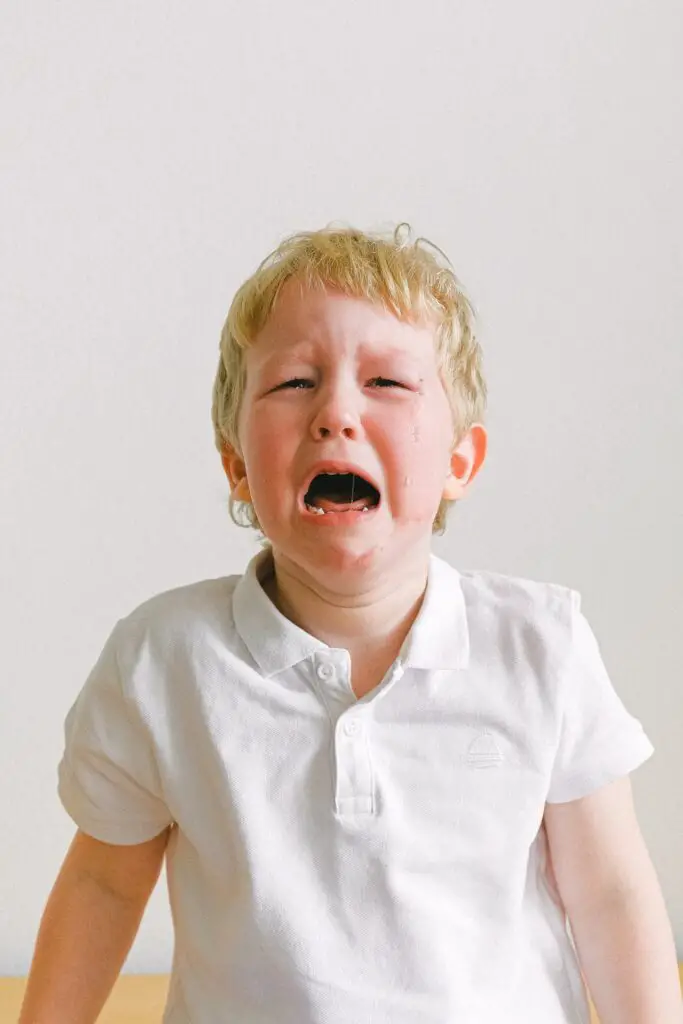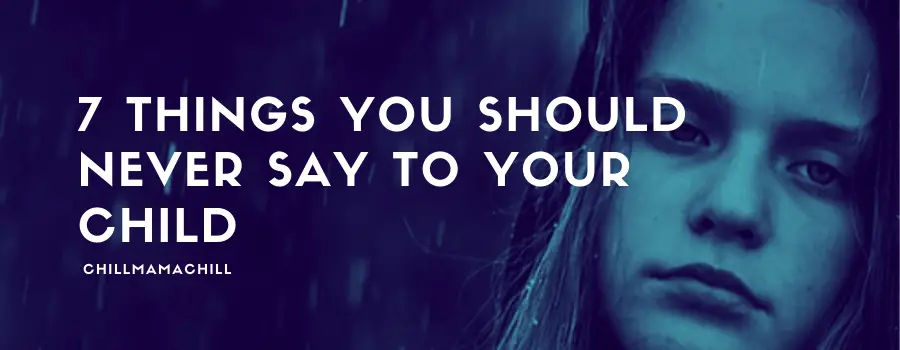Sometimes I wonder if we as parents realize that kids are human too. Little humans with emotions just like us. The only difference is that we can explain our feelings and relate them to daily occurrences. When we fail to extend grace to our children in the same way we extend to ourselves, we fail.
I use ‘fail’ cautiously because most times, we know the outcome of using certain phrases on our kids but, for some reason, we don’t avoid them.
The way we speak to our little ones influences their worldview and the way they see themselves. That’s why we must be careful to send the right message through our words. Here are a few statements we feel you should avoid.
Things You Should Never Say to Your Child
Do you find yourself using negative phrases? Read on and see how they affect your child and the way they relate to you and others.
I Used to Mess Up Just Like You
This one seems comforting, right? Maybe it feels so, but it’s not. Do you really want to correct them and offer guidance, or do you want to validate their mess?

By the time you are done spitting that statement, they are already feeling justified to go on with their ill behavior. After all, mommy is fine now; she used to mess up but turned out fine. You have licensed that behavior, and it’ll be hard to correct it in the future. This statement blinds them from seeing the consequences instead of warning them.
Don’t Be Lazy
What seems like laziness to us is to a child a reaction to what they are feeling. Think about it, even to an adult, laziness is fanned by lack of motivation, not knowing how to handle a task, or feeling overwhelmed.
In most circumstances, a child will not be in a position to interpret the underlying cause of their sluggish mood. When you tell them ‘stop being lazy,’ you are making them feel useless, idle, and incapable. This waters down any effort they had to do better, and they end up feeling worthless.
Instead, try explaining the consequences of not taking immediate action. Show the merits of pushing themselves to work regardless of their feelings. This way, you become a source of motivation to them.
Stop Crying
A healthy kid will naturally express their emotions. If they are happy, you know it. If they are sad, angry, afraid, excited, or frustrated. They are being genuine; let them express it the best way they know.
The moment you interrupt this pattern, the child starts to conceal their feelings, they lose touch with their emotional selves, and that’s the worst place for a child to be.

The worst way to deal with it for toddlers who throw tantrums is to tell them to calm down. A child who feels conflicted may not know any other form of expressing themselves except screaming, rolling on the ground, kicking stuff, and so on. How about you lead by example? Calm down and let them imitate you.
Doing this helps them open up. They are comfortable communicating their feelings to you whenever they need to.
Don’t Be Like Me
Little ones view us as the most angelic and perfect beings. You are an image of their aspirations. When you advise them not to be like you, you are simply building self-doubt in them. They start discrediting themselves, and that grows into low self-esteem.
Address the area of weakness without making the child feel like they could have inherited some bad habits from you. If they feel this way, they will expect to be justified for their errors.
You Don’t Have a Choice
Unless your child does not have the capacity to make the right decision, do not make them feel guilty for making a choice. There are many ways of teaching a child to submit without taking away their power of choice.
A child should not feel obligated to follow your choice. They should feel confident enough to make a decision when the time comes. That is part of being independent.
Why Are You Being Childish?
Isn’t he/she being himself? Are you looking for adult behavior in your child? Even when they have retrogressed and are going back to old habits, telling them to stop being like a child does not help in any way.
If a child is inconsistent in the way they are maturing, observe them first and study the surrounding situations. A child often regresses out of fear, anxiety, or nervousness. Try not to shame them; they are passing a message.
Asking open-ended questions and listening intently to what they have to say works best. It lets you know their feelings and how to attend to them. This yields better results than when you reprove them.
You are Too Needy
The truth is that we are all needy. In fact, adults are needier than children, so this statement is hurtful to adults as well.
Children who grow up denying their needs end up struggling to prioritize themselves. They harbor guilt for expressing their desires and end up losing themselves to other people’s desires.
The only way out of this is to see yourself as the one with limited capacity to meet the needs of the child. That way, you avoid uttering remarks that make the child feel the need to simplify their need to the level of your ability.
Conclusion
Overall, a child is not responsible for their parent’s emotions. Even when their behavior throws you off-balance and you are disappointed, sad, angry, and so on, your words should not render the child responsible for your feelings.
We understand that it’s crucial for a child to understand that their habits affect others. However, it is not appropriate to demand they respond a certain way so that their response takes care of your emotions.
You may have realized that most parents use more threats than guiding words in their parenting. This is probably the reason why we have kids who stay ready for punishment at all times. Instead of reflecting on the desired behavior, the kid constantly chooses to rebel.
But there’s a bit of hope. Learning this today equips you for the rest of your parenting journey. And we sure hope it’s not too late.

I’m Cathrine and I’m a 39-year-old mother of 3 from Utica, New York. And I’m extremely happy you’ve come to visit my hide-out on the web. Here I post about everything related to family-life and usually it will involve babies and lessons I’ve learned over the years from experts, friends, and my own mistakes. So hopefully you will find what i write fun and informational!


